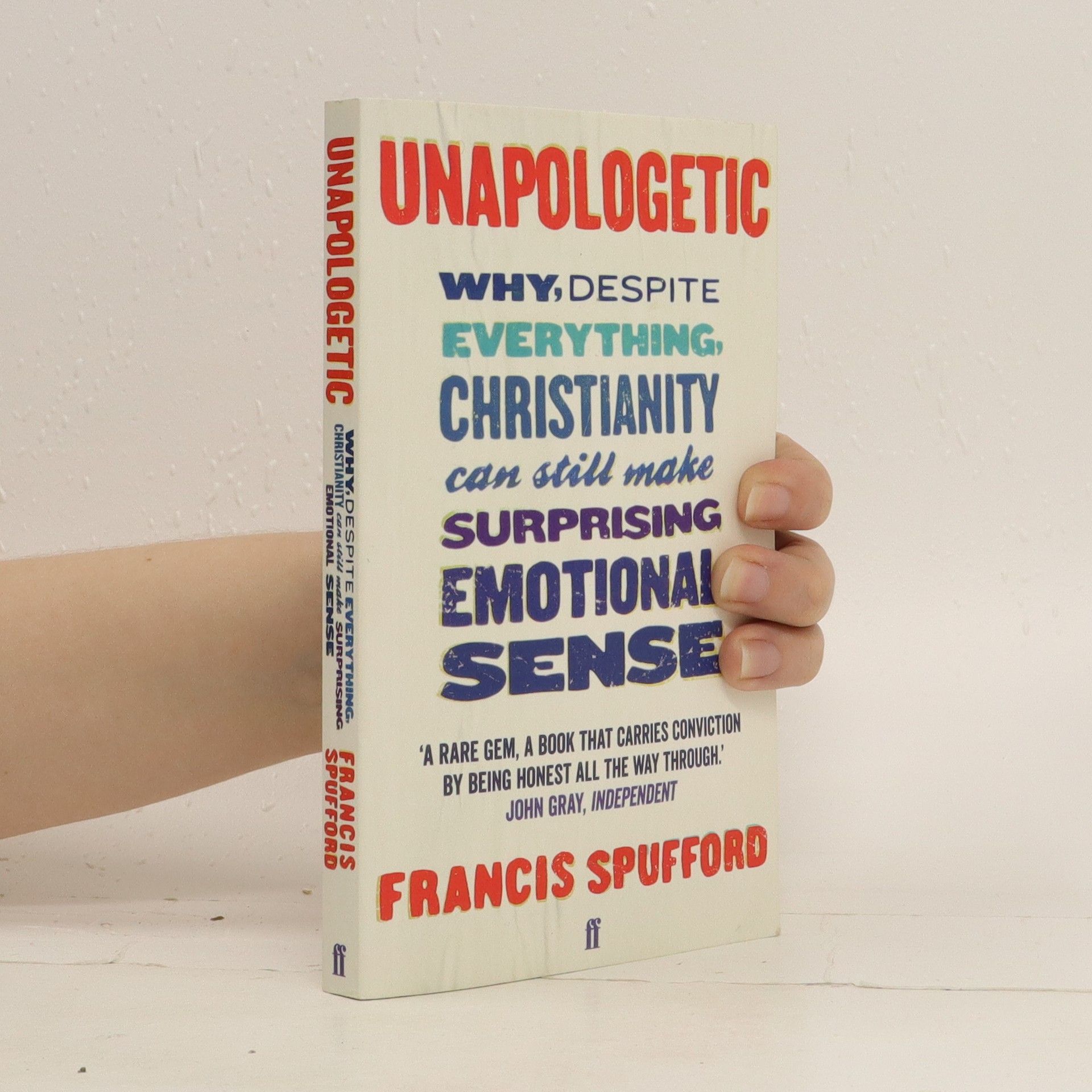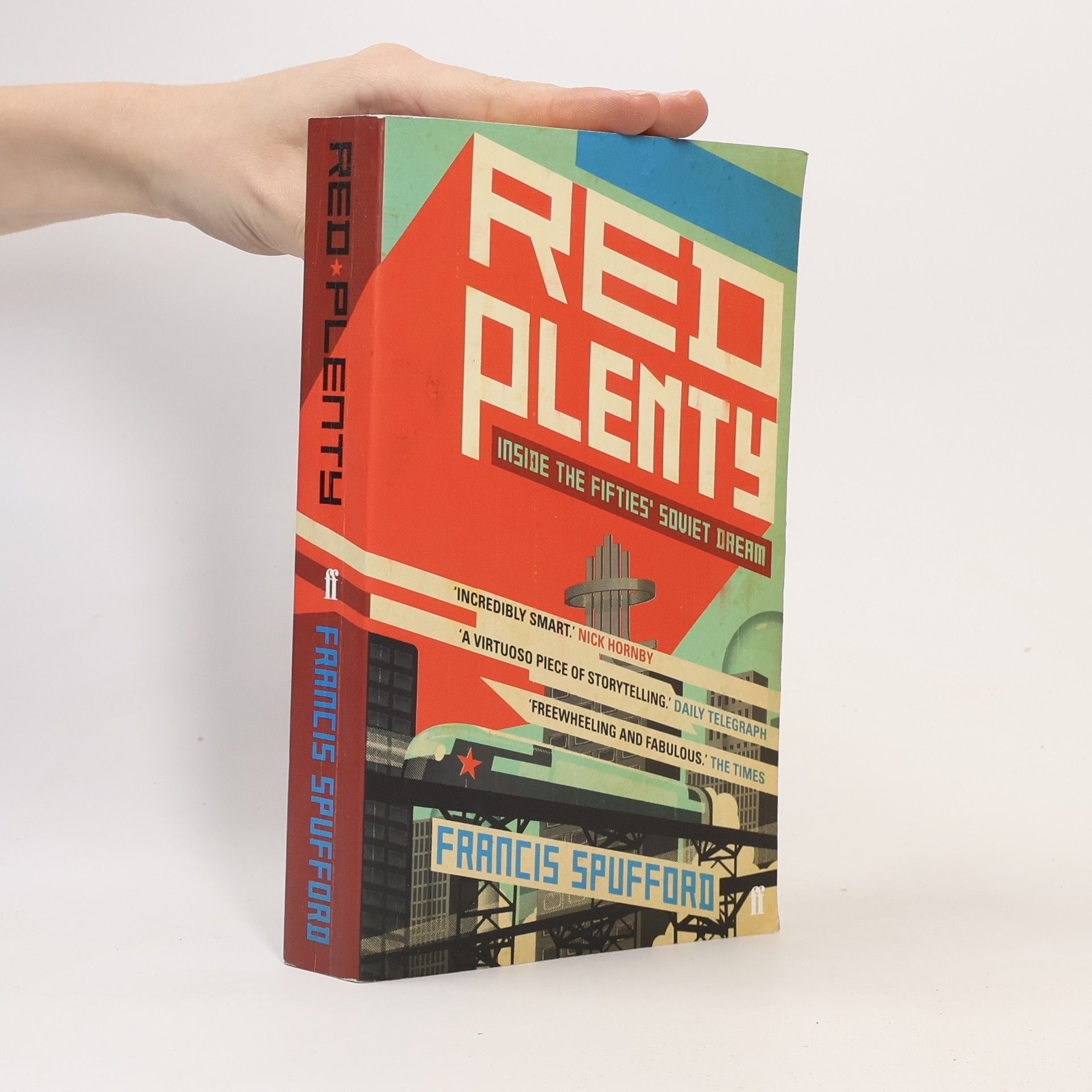Golden Hill
- 352 stránok
- 13 hodin čítania
I've no history here, and no character: and what I am, is all in what I will be...
Spufford sa vyznačuje plynulým prechodom medzi žánrami, pričom si zachováva silný rozprávačský talent. Jeho diela majstrovsky prepletajú fakty s fikciou, často skúmajú historické udalosti a ich dopad na ľudské osudy. Spuffordov štýl je pozoruhodný svojou schopnosťou vtiahnuť čitateľov do zložitých tém prostredníctvom pútavého rozprávania. Jeho písanie sa vyvinulo od historickej literatúry faktu až po plnohodnotné romány, pričom si vždy udržiava jedinečný pohľad a literárnu hĺbku.







I've no history here, and no character: and what I am, is all in what I will be...
"Spufford cunningly maps out a literary genre of his own . . . Freewheeling and fabulous." —The Times (London) Strange as it may seem, the gray, oppressive USSR was founded on a fairy tale. It was built on the twentieth-century magic called "the planned economy," which was going to gush forth an abundance of good things that the lands of capitalism could never match. And just for a little while, in the heady years of the late 1950s, the magic seemed to be working. Red Plenty is about that moment in history, and how it came, and how it went away; about the brief era when, under the rash leadership of Khrushchev, the Soviet Union looked forward to a future of rich communists and envious capitalists, when Moscow would out-glitter Manhattan and every Lada would be better engineered than a Porsche. It's about the scientists who did their genuinely brilliant best to make the dream come true, to give the tyranny its happy ending. Red Plenty is history, it's fiction, it's as ambitious as Sputnik, as uncompromising as an Aeroflot flight attendant, and as different from what you were expecting as a glass of Soviet champagne.
What if the Soviet 'miracle' had worked, and the communists had discovered the secret to prosperity, progress and happiness.'
"Suitable for believers who are fed up with being patronised, for non-believers curious about how faith can possibly work in the twenty-first century, this title presents an argument that Christianity is recognisable, drawing on the vocabulary of human feeling, and satisfying those who believe in it."--Www.whitcoulls.co.nz.
When Captain Scott died in 1912 on his way back from the South Pole, his story became a myth embedded in the national imagination.
A thrilling tale of murder and mystery in a city where history has run a little differently -- from the best-selling author of Golden Hill.In a city that never was, in an America that never was, on a snowy night at the end of winter, two detectives find a body on the roof of a skyscraper.It's 1922, and Americans are drinking in speakeasies, dancing t[Bokinfo].
Travel is no longer a luxury and not always an entertainment. Many journeys need to be made‹to get home or away from an enemy, to work, to find a last resting place, or because someone has told you to go. This issue of Granta is about such journeys; you might call it necessary travel writing, with Decca Aitkenhead: looking for cheap sex and drugs; Manuel Bauer: a child¹s escape over the Himalayas; Isabel Hilton: what have they done to Beijing?; Ian Jack: the train crash that stopped Britain; Ryszrd Kapuscinski: in the forests of Cameroon; Ian McEwan: on the retreat to Dunkirk, 1940; John Ryle: the last Emperor makes his last journey; Dayanita Singh: inside a sanctuary for girls in Benares; Simon Winchester: how Britain and the US made a people homeless; plus the untold story of how the FBI pursued James Baldwin at home, revealed by James Campbell. Granta is the paperback magazine of new writing. Every issue features the best new fiction, reportage, memoir and photography, generally collected under a theme.
From the author of Golden Hill 'Glorious.' Evening Standard'Exhilarating.' TLS'Brilliant.' Observer'Dazzling.' The Times'Extraordinary.' Financial Times'Superb.' Guardian'My god he can write.
Children's books - from Narnia to The Hobbit - are celebrated in this enlightened examination of the joys of childhood reading.Fairy tales and Where the Wild Things Are, The Lord of the Rings and the Narnia books, Little House on the Prairie and The Earthsea Trilogy. What would you find if you went back and re-read your favourite books from childhood? Francis Spufford discovers both delight and sadness, in this widely celebrated memoir of a boy who retreats into books, faced with a tragedy in his family.'A beautifully composed and wholly original memoir, sounding the classics of children's literature.' David Sexton, Evening Standard'Exuberant and serious, funny and sophisticated, this memoir of reading and childhood is a delight.' Andrea Ashworth